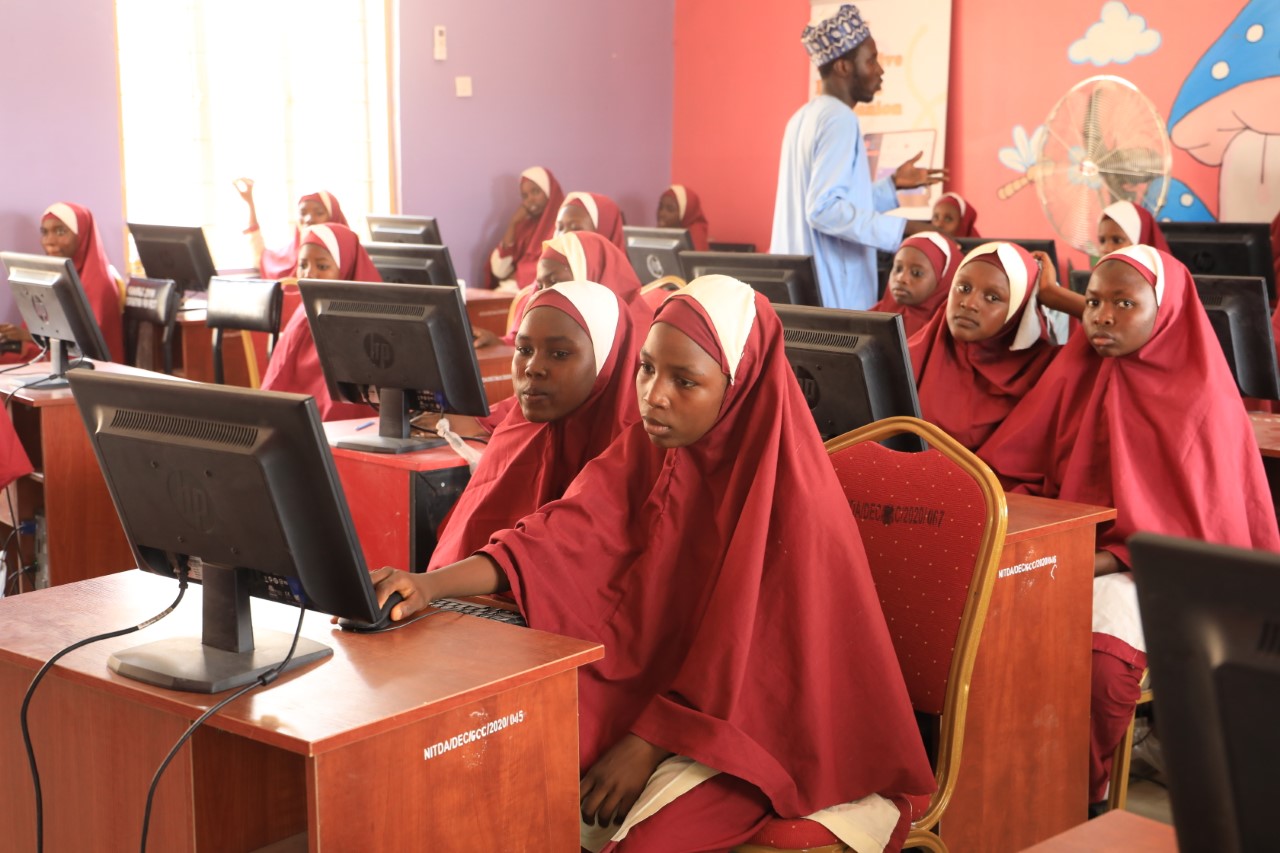By Ibukun Oguntola and Hadiza Mohammed (Lead Writers)
The boko haram insurgency has negatively impacted girl child education which is vital to any country’s growth. An organisation increasing access to education for the girl child in Borno State is plugging some of the gaps in the state’s education sector, ensuring that girls can exercise their right to learn.
Nigeria has the third-highest number of internally displaced persons (IDPs) in Africa and in 2020, it was reported that the nation had 2.7 million IDPs. In North-East Nigeria alone, about 6 million people, including over 4 million women and girls have been heavily impacted by 12 years of the Boko Haram insurgency which has damaged a lot of the infrastructure across Borno, Adamawa and Yobe State. The educational infrastructure was not spared.
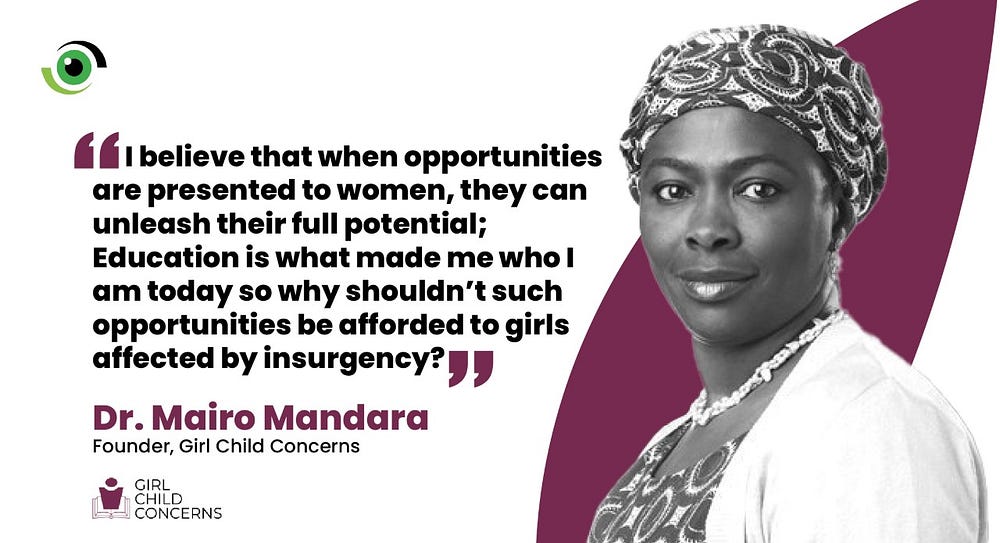
Though the gap is narrowing, girls are still more likely than boys to miss out on their education in Nigeria. The Nigeria Demographic and Health Survey (NDHS) 2018 revealed that men were more educated than women as 35% of women and 22% of men had no formal education. It further revealed that the percentage of women with no education had decreased since 2003, from 42% to 35%. Evidently, the insurgency further impacted girl child education in the northeastern part of the country as national statistics unveiled vast differences in the percentage of girls who attend school, with attendance lowest in the northern region.
Girl child education is vital to any country’s overall growth and one organisation committed to “opening the door to education to create space for change” is the Girl Child Concerns (GCC), a non-profit established in 2003 by Dr Mairo Mandara, to elevate the lives of the youth, particularly girls, through improved education opportunities. As part of its mandate to increase access to education for young girls living in IDP camps, in 2020, a Girls’ Academy was established to help reduce the number of out-of-school girls in IDP camps in Borno State.
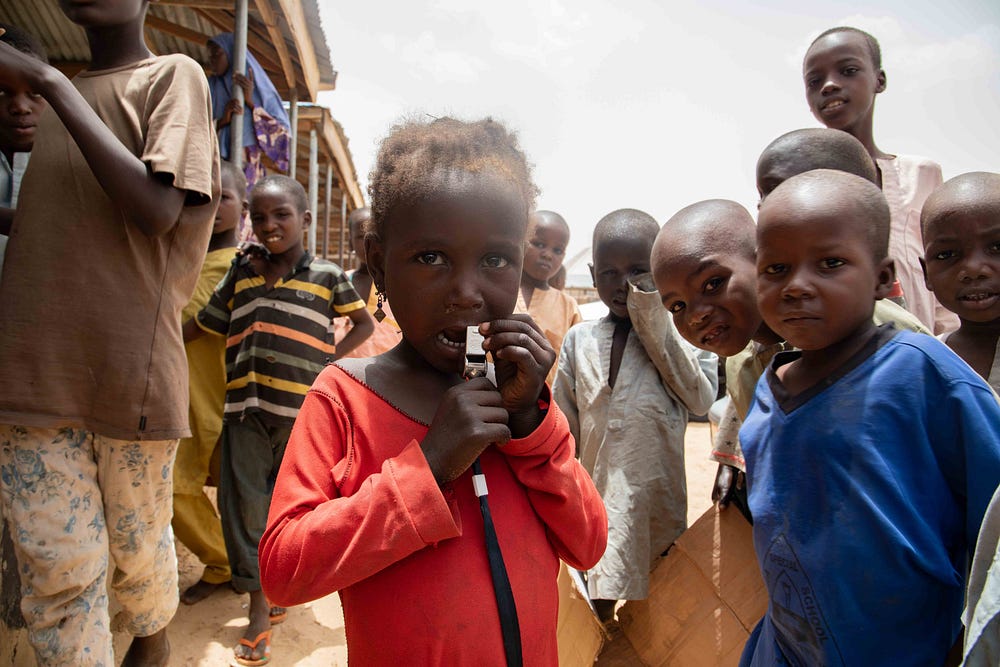
Starting the Girls’ Academy
According to Dr Mandara, an obstetrician, gynaecologist & public health physician who is passionate about social justice, women & girls’ issues, and a foremost advocate of girl-child education in Nigeria, when GCC first started, “it was an informal thing. I took a girl, Bilkisu took a girl, and we got a couple of our friends to take a girl each. We supported these girls through secondary school and liaised with the parents to let them complete school”. Alongside Dr Mandara, Hajiya Bilkisu Yusuf, a prolific journalist and Dr Hamid Bobboyi, were at the forefront of the establishment of GCC.
Subsequently, Girl Child Concerns in collaboration with the Borno State Government sponsored forty-two girls who escaped from Boko Haram terrorists after their abduction from the Government Secondary School, Chibok in April 2014, to private schools in Plateau and Kaduna State. However, as the number of IDPs increased, there arose a need to do more. Mrs Hauwa Gwoma, Coordinator, Girls Academy said, “GCC Girls Academy is a child of necessity because due to the impact of the pandemic, girls were stranded, facing different hazards within and outside the IDP camps, and something needed to be done about it”. Thus, the idea to build the academy was born.
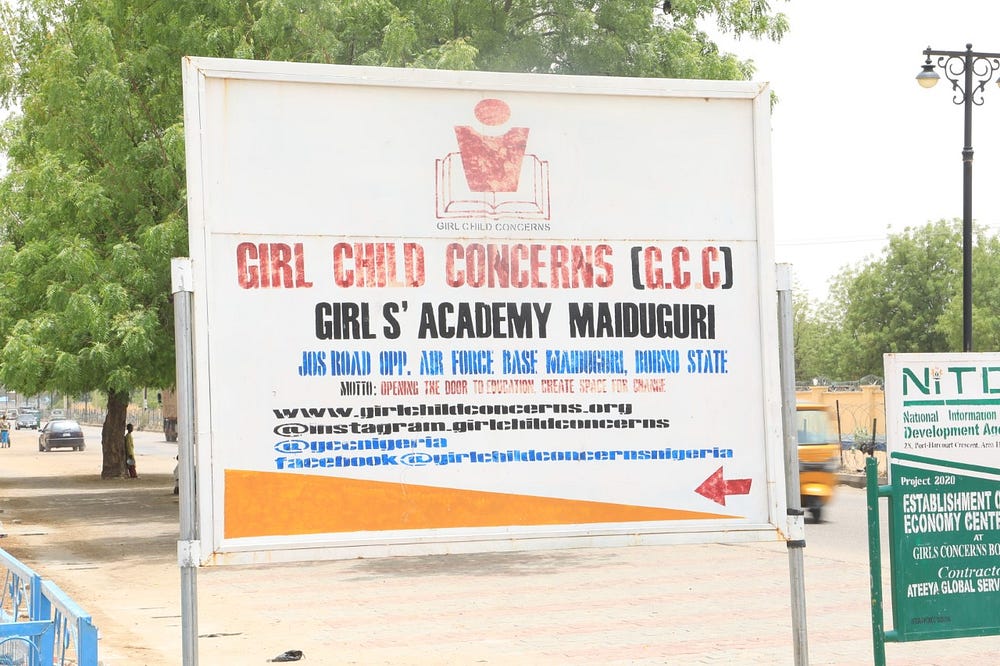
The Borno State Government and the Universal Basic Education Programme (UBE) provided the school buildings and then teachers, and other school staff were recruited. The academy is tuition free. It is exclusively boarding therefore everything, including living arrangements, uniforms, feeding and everything the girls need to live and learn well, is provided by the school. Before they are enrolled, the guardians or parents of the students are required to sign a legally binding agreement, giving their consent to not withdraw the girls from school until their education is completed. This legal agreement is signed in the presence of their traditional rulers.
The first point of contact between the staff of the academy and the students typically happens in the IDP camps where they provide Mental Health and Psychosocial Support (MHPSS) to the girls. This is a critical need, particularly in the IDP camps where survivors of the gross human rights abuses perpetrated by the insurgents are left to deal with the trauma on their own. It is during this process that the girls are selected and enrolled into the academy.
Once enrolled, the girls are placed in a preparatory class for the first nine months to introduce them into the educational system. Qualifying exams are then administered to the girls before they are promoted into Junior Secondary Class Level. Since its inception in 2020, a total of 370 girls are currently enrolled in the Girls academy. So far, none of the girls have graduated yet.
The school can currently accommodate only the preparatory class and junior secondary one and two classes. Mrs Gwoma said that plans are in motion to expand the school up to senior secondary six and accommodate more students.
The academy also encourages the girls to be self-sufficient. They learn digital skills, how to sew and are taught handcraft. Utilising these skills, they sew dresses and throw pillows, make beads which are sold, and the profits spilt between the academy, the girls and their parents or guardians.
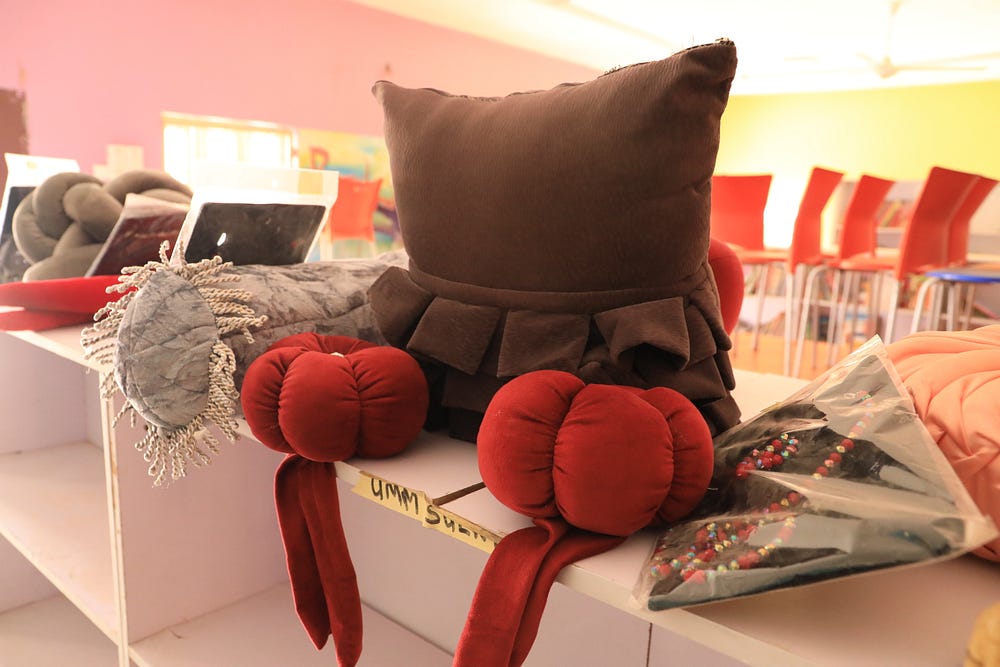
The girls’ parents are thankful for the intervention knowing that it is changing their daughters’ lives for the better. Fourteen-year-old Amina*, a student of the academy, lived with her parents and siblings in an IDP camp before being selected to attend the Girls Academy. She is grateful for the education she is receiving and entrepreneurial skills she is being taught.
Clear Need for Sustainability
The Girls’ Academy is primarily financed through philanthropy, and this raises concerns for its sustainability as there must be adequate and sustained funding sources to ensure that the academy continues to achieve its goal of opening the doors to education for all girls.
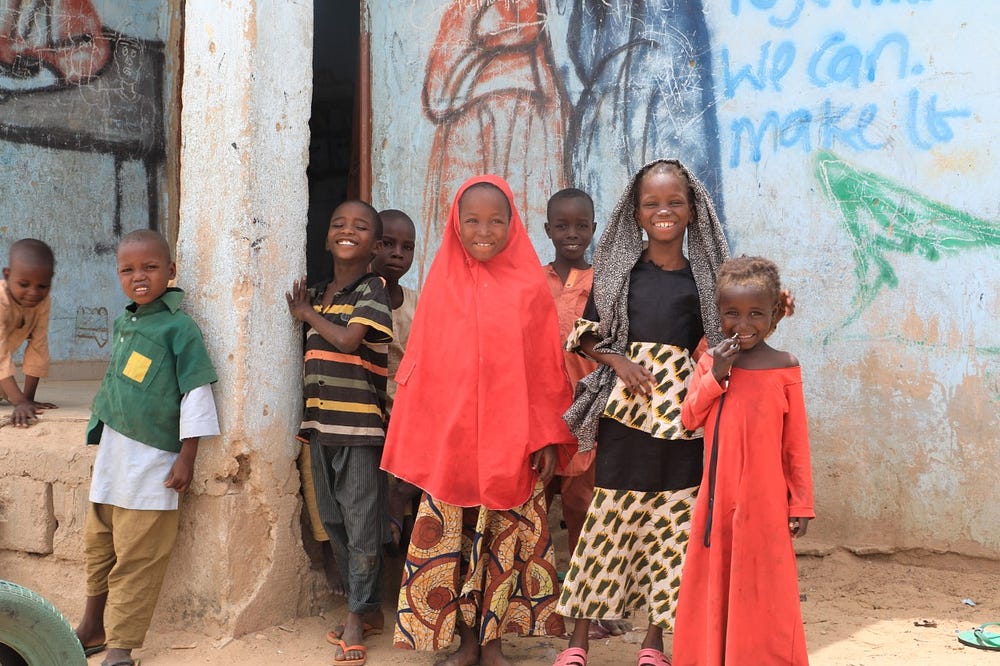
While a lot of attention is placed on the girl-child education, and rightly so, there is great concern that not a lot is being done for young boys impacted by the insurgency. Large numbers of young boys roam the IDP camps stuck in limbo and facing an uncertain future. The creation of similar systems to incorporate education for young boys is necessary to also give them a chance to uplift themselves and live a better life.
Although conflicts affect everyone, its impact on children, especially girls cannot be ignored. Their childhood is often interrupted as they are forced to live in a world where food, access to health services, and education is severely disrupted. The insurgency has compounded the problems in Nigeria’s education sector, it is important that the Borno State government, with its broad mandate, which includes ensuring education for all, in partnership with private organisations like GCC, with their ability to work together with communities to plug some of the gaps in the state’s education sector, ensure that all children are able to exercise their right to learn.


